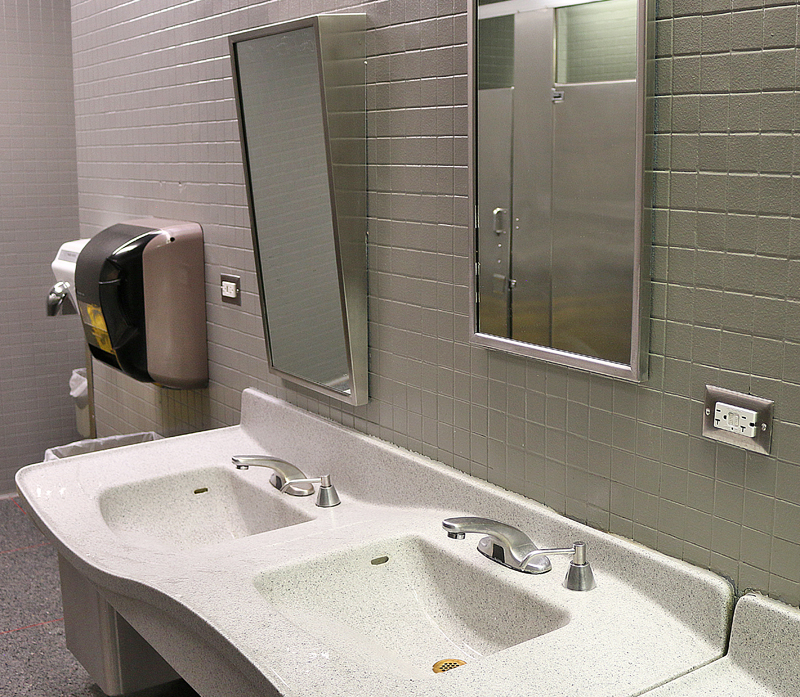“Wash your hands. Don’t use public restrooms where you can avoid it (including the lavatory on board). And bring plenty of hand sanitizer, which TSA is permitting you to bring in larger than 3 ounce quantities. Wipe down your personal spaces, even knowing that airlines are doing this more than ever before. And wipe down your bags as well, and.. keep washing those hands.”
Dispelling Five Myths About Staying Safe During 2019 Novel Coronavirus Pandemic

The paragraph you just read was from this article purporting to fact check as to whether flying as a passenger aboard an airplane actually puts you at risk for the 2019 Novel Coronavirus as written by Gary Leff of View From The Wing — and although I respect his point of view, please allow me to do a fact check of that one paragraph.
1. Properly Wash Your Hands on a Regular Basis — No Need to Overdo It.
What exactly does “keep washing those hands” mean?
You actually do have some control over the spread of the 2019 Novel Coronavirus — even if not everything is known about it yet; and even if your control is limited.
No vaccine exists to prevent contracting the 2019 Novel Coronavirus disease, as the best way to prevent illness is to avoid being exposed to this virus; so if you need only one way to reduce your chances of contracting it, here it is — and it should be of no surprise to you as a reader of The Gate:
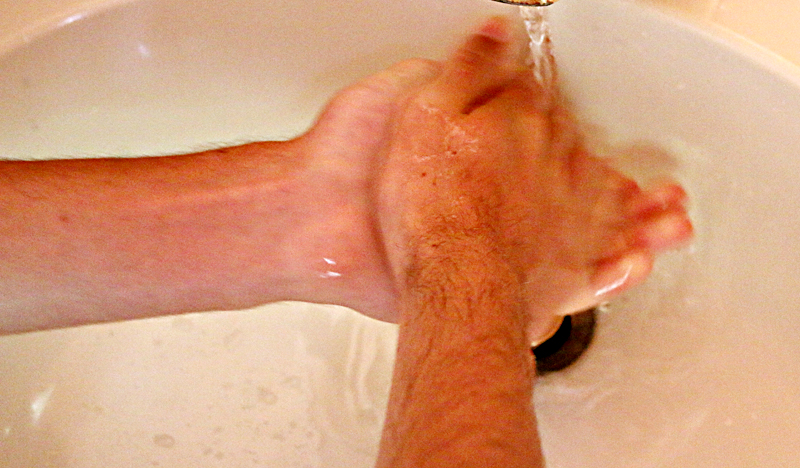
WASH YOUR HANDS PROPERLY!!!
I have been espousing this advice repeatedly for years — to the point where some readers of The Gate have ridiculed me about it — but I vehemently believe that had people around the world washed their hands properly, the 2019 Novel Coronavirus would not have spread as much as it has; that it would have been better contained; and that no one would be worrying about it approaching pandemic status.
Properly washing your hands on a regular basis is the most important step you can take in protecting yourself from contracting diseases from many viruses, microbes, and germs — but washing your hands more than necessary can lead to such results as drying out your skin with possibly little to no appreciable increase in efficacy against diseases.
I intend to write a revised article pertaining to washing your hands properly and effectively, as I have not suffered from a virus of any kind in years — and no, you do not need to be obsessive or compulsive about constantly washing your hands either for a better chance to stay healthy.
The Centers for Disease Control and Prevention of the United States always recommends everyday preventive actions to help prevent the spread of respiratory diseases — including washing your hands often with soap and water for at least 20 seconds, especially after going to the bathroom; before eating; and after blowing your nose, coughing, or sneezing…
…but the word often is only if you are constantly touching your eyes, nose, and mouth. You do not need to wash your hands as often if you can employ the little trick which works for me.
The World Health Organization strongly advises that you avoid touching your eyes, nose and mouth unless you have just thoroughly washed your hands. Hands touch many surfaces and can pick up viruses. Once contaminated, hands can transfer the virus to your eyes, nose or mouth. From there, the virus has a better chance of entering your body than at other areas of your body and can make you sick.
Proper washing of hands has been known to reduce the chances of contracting a virus; but that alone was not enough if I wanted to further improve reducing my chances of contracting a virus. I had to somehow train my brain — and myself — to not touch my face under any circumstances except after I had properly washed my hands and I was confident that they were clean.
I am not sure how to better explain this; but whenever I touched something or someone with my hand, I considered that hand contaminated — and I had to somehow turn a switch on in my brain not to use that hand on my face until it was properly washed.
If you just handled something which was incredibly disgusting — like sticking your hand into a toilet in a public washroom which had not been flushed after it had been used, for example — would you eat something with that hand afterwards without cleaning it? Would you rub your eye with that hand afterwards without cleaning it?
Training and conditioning my brain to adopt this technique did not happen immediately; but my brain now applies the technique subconsciously and automatically as part of what now feels like an innate habit…
…and as a result, I have not contracted a virus in years — despite shaking the hands of people who were clearly ill; and despite having people cough, sneeze, and yawn on me without covering their mouths in enclosed crowded spaces such as aboard an airplane or subway car.
One way you may want to consider training yourself is to put a harmless substance on your hand with which you would otherwise not rub your eyes to train you to get into the habit of touching your eyes, nose, and mouth less frequently.
2. Hand Sanitizer is Not Necessary — Unless…
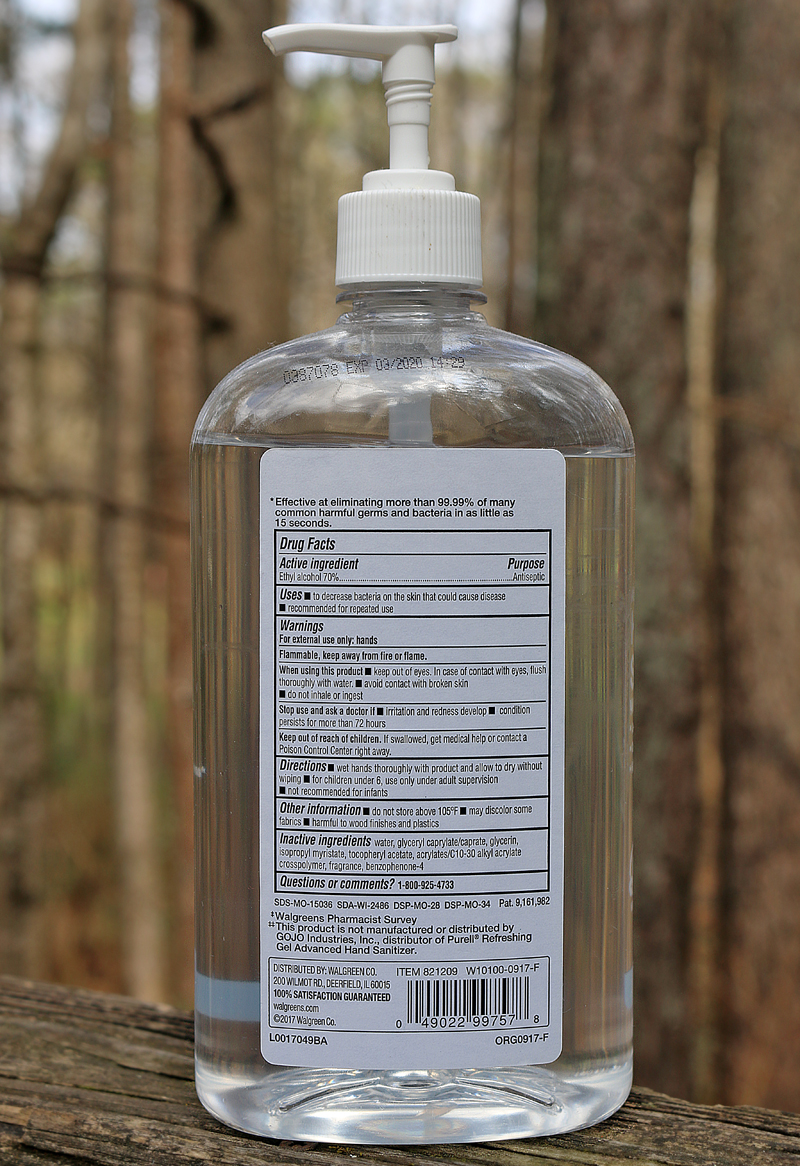
If soap and water are not readily available, use an alcohol-based hand sanitizer with at least 60 percent alcohol. Both the Centers for Disease Control and Prevention and the World Health Organization strongly recommend that you always wash hands with soap and water if your hands are visibly dirty.
I rarely ever use hand sanitizer, as I only use it whenever I cannot wash my hands properly — and that is probably only a few times per month at the most.
Even though the Transportation Security Administration has relaxed the rules pertaining to liquid hand sanitizer, as passengers are now permitted to carry containers of up to a maximum of 12 ounces of liquid hand sanitizer through airport security checkpoints, I have no need to do so. Instead, I carry no more than one single ounce of hand sanitizer with me when I travel — just in case — and I rarely replace it.
3. You CAN Use Public Washrooms and Airplane Lavatories — But Take the Right Precautions

What are you going to do if you are away from home and in a setting in which public washrooms are all that is available — especially if you are a passenger aboard an airplane?
The secret is to use disposable paper towels to protect yourself from any viruses, microbes, or germs which may be lurking on door handles, faucets, toilets, or soap dispensers — all of which you should not touch directly with your hands. I often carry a few extra clean paper towels in my pocket or in my bag in case none are available.
Do not use something reusable such as gloves, as even though you may be protecting yourself, you could very well spread the germs on them elsewhere.
4. Wipe Down Personal Spaces?
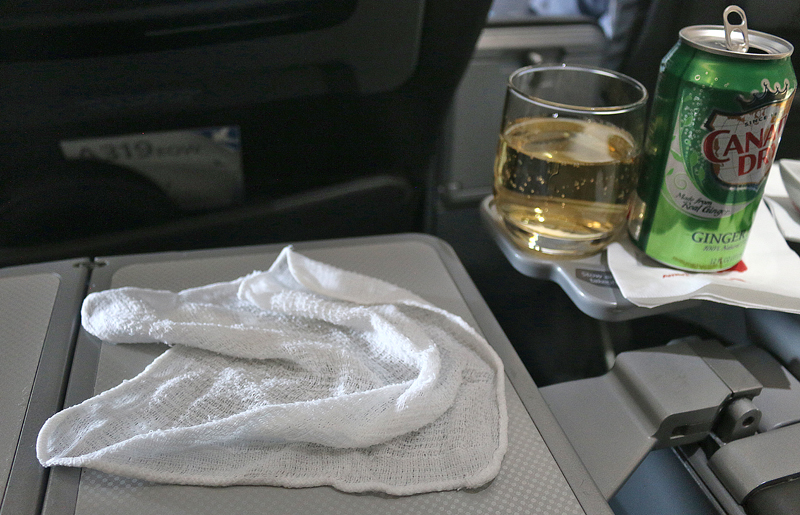
Wiping down personal spaces can help mitigate the spread of viruses, microbes, and germs which cause diseases — but this is not always necessary if you properly wash your hands on a regular basis.
The reason for wiping down personal spaces is so if you accidentally touch them before touching your eyes, nose, or mouth, you reduce your chances of unknowingly introduce a virus, microbe, or germ to your body. Until you can better discipline yourself from touching your eyes, nose, and mouth, clean and disinfect objects and surfaces which you touch frequently using a regular household cleaning spray or wipe…
…but do not overdo it.
Speaking of overdoing the cleaning, sanitizing, and disinfecting — you can read about the differences between the three in this article — of surfaces, I am concerned that too much of it by airlines, lodging companies, rental car companies, and individual people may actually help some viruses, microbes, and germs to morph into more resistant strains of themselves as a result.
5. Wipe Down Your Bags as Well? And About Your Clothes…
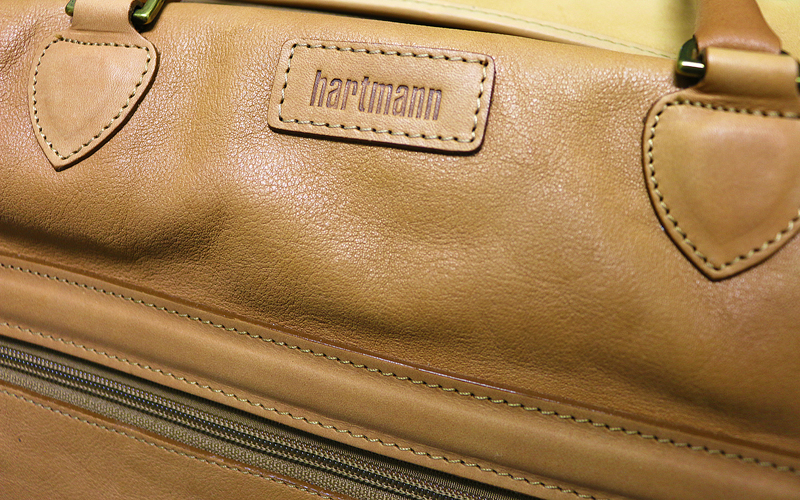
I may have wiped down my bags five times in my life — if that often.
Instead, I always isolate my bags in an area of where I live in which they do not need to be wiped down. This practice is also potentially useful in protecting myself and my home against bed bugs.
Keeping that in mind, I also never wear clothes which I have worn outside my home. I always change into clean clothes so that I reduce the possibility of spreading viruses, microbes, and germs onto chairs and other furniture around where I reside.
Other Things You Can Do to Prevent the Spread of the 2019 Novel Coronavirus
Other actions which are within your power to mitigate the spread of the 2019 Novel Coronavirus — as well as the spread of other viruses, microbes, or germs — include but are not exclusive to:
- Maintaining a distance of at least six feet between yourself and anyone else — especially if he or she is coughing or sneezing. When someone coughs or sneezes, he or she sprays small liquid droplets from their nose or mouth which may contain a virus. If you are too close, you can breathe in the droplets — including the 2019 Novel Coronavirus — if the person coughing has the disease.
- Practicing responsible respiratory hygiene by ensuring that you — as well as the people around you — follow good respiratory hygiene because droplets spread viruses. By following good respiratory hygiene, you protect the people around you from viruses such as cold, flu, and the 2019 Novel Coronavirus. Cover your mouth and nose with your bent elbow; or use a tissue when you cough or sneeze. Once used, dispose of the tissue immediately in a proper receptacle.
- Staying home if you do not feel well. If you have a fever, cough, and difficulty breathing, seek medical attention as soon as possible and call in advance. Follow the directions of your local health authority. National and local authorities will have the most up to date information on the situation in your area. Calling in advance will allow your health care provider to quickly direct you to the right health facility. This will also protect you and help prevent spread of viruses and other infections.
- Wearing a mask or covering for your face — but keep in mind that this is to prevent other people from catching a virus, microbe, or germ if you happen to unknowingly be carrying it. Controversy does surround how and when to properly use masks or coverings for your face and whether they are proven to be effective against the spread of viruses, microbes, or germs.
Summary
You do not need to do more than is required to stay safe, as the information in this article contains recommendations from both the Centers for Disease Control and Prevention in the United States and the World Health Organization — as well as my personal experience, as I have not been sick because of a virus, microbe, or germ in years.
The key is to increase your awareness of what you touch — as well as to stop yourself from touching your eyes, nose, or mouth unless you are absolutely certain that your hands are indeed clean enough to do so, which occurs after properly washing your hands on a regular basis.
I deferred a challenge to you in this article pertaining to my unproven secret for not contracting a virus in years: would you consider adapting a similar regimen to the one I have imparted in this article in which you wash your hands properly and not touch any part of your face except after your hands have been properly washed? If you do, I would like to please know the results after a certain period of time elapses and see if contract fewer viruses as a result…
…and if the regimen which you newly employed does not work for you, you are no worse off than you were before.
At least trying it as part of your routine could not hurt — but you will never know unless and until you try.
To reiterate the five myths in order to be safer during the current 2019 Novel Coronavirus pandemic:
- You do not need to wash your hands more often than necessary — rather, properly wash your hands on a regular basis
- Do not use hand sanitizer unless you absolutely are unable to properly wash your hands
- You do not need to avoid public washrooms and lavatories aboard airplanes if you use disposable paper towels to use the equipment within the facility
- Wiping down personal spaces does not need to be frequent — especially if you do not touch your eyes, nose, or mouth after touching those surfaces
- Wiping down your bags may not be necessary if you isolate them in a part of your home — especially if you do not touch your eyes, nose, or mouth after touching them
All photographs ©2016, ©2017, ©2019, and ©2020 by Brian Cohen.
